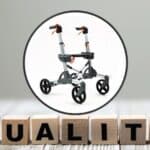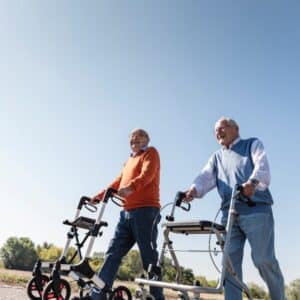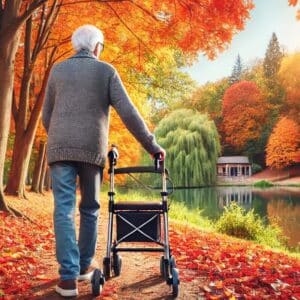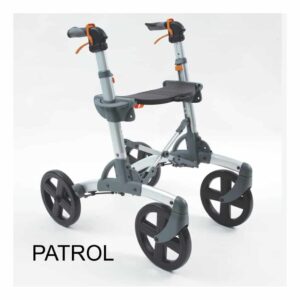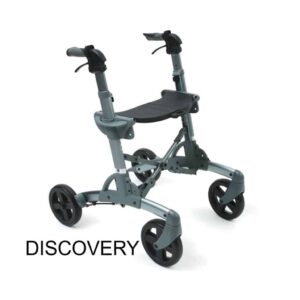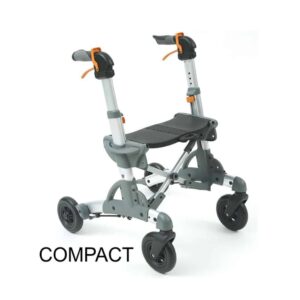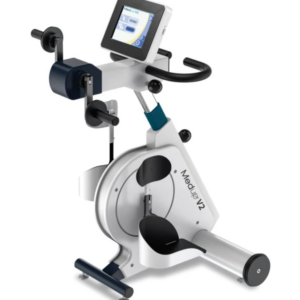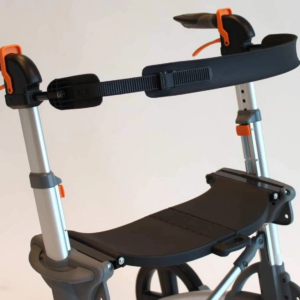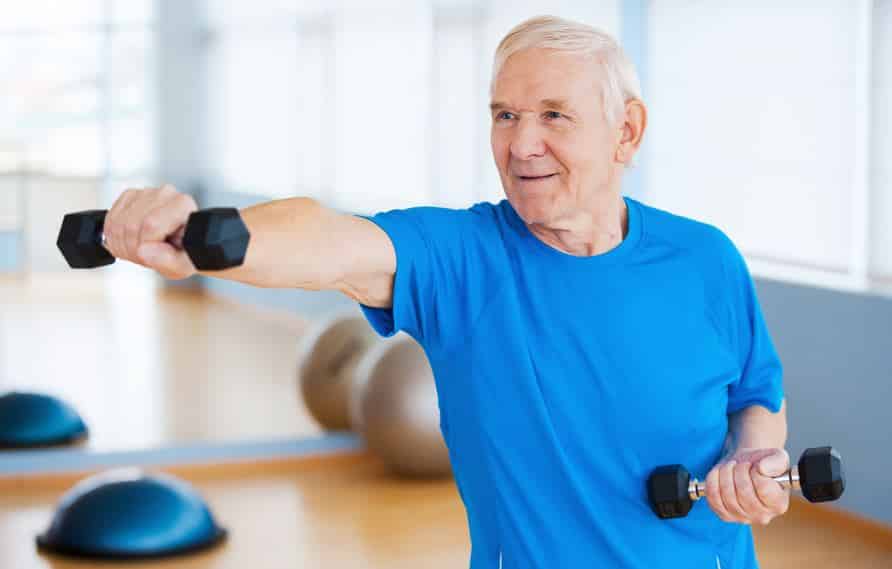
Misconceptions about aging and losing mobility are common and can lead to misunderstandings and negative stereotypes about older adults. Let’s address these misconceptions and highlight the positive impact that high-quality rollators can have on mitigating mobility restrictions and promoting physical and mental well-being.
- Aging does not inevitably mean losing mobility: While certain physical changes occur with age, not all older adults experience significant mobility loss. Regular exercise, a healthy lifestyle, and proactive healthcare can help maintain mobility and prevent functional decline.
- Older adults are not helpless and dependent: Many older individuals lead active and independent lives, engaging in meaningful activities and contributing to their communities. While some may require assistance or have specific needs, it is important to recognize their capabilities and strengths.
- Not all mobility issues are solely due to aging: Mobility problems can arise from various factors, such as chronic conditions, injuries, or environmental barriers. It’s crucial to understand that not all mobility challenges are solely attributed to aging, and proper medical interventions and assistive devices can address these limitations.
- Older adults can and should engage in physical activity: Exercise and physical activity are vital for maintaining mobility, strength, and overall health at any age. Engaging in regular physical activity can prevent or manage age-related conditions. Older adults should consult with healthcare professionals to develop safe and appropriate exercise regimens.
- Adaptations and assistive devices enhance independence: Utilizing adaptations and assistive devices, including rollators, should not be seen as signs of weakness but rather as tools that enhance mobility, safety, and independence. Rollators, in particular, provide stability and support for walking, enabling older adults to maintain an active lifestyle.
- Cognitive decline does not always accompany physical decline: Cognitive changes can occur with age, but they are not inevitable or synonymous with physical decline. Many older adults maintain sharp mental acuity and cognitive abilities. Engaging in intellectually stimulating activities and maintaining social connections promotes cognitive health.
High-quality rollators can mitigate mobility restrictions and positively impact physical and mental well-being:
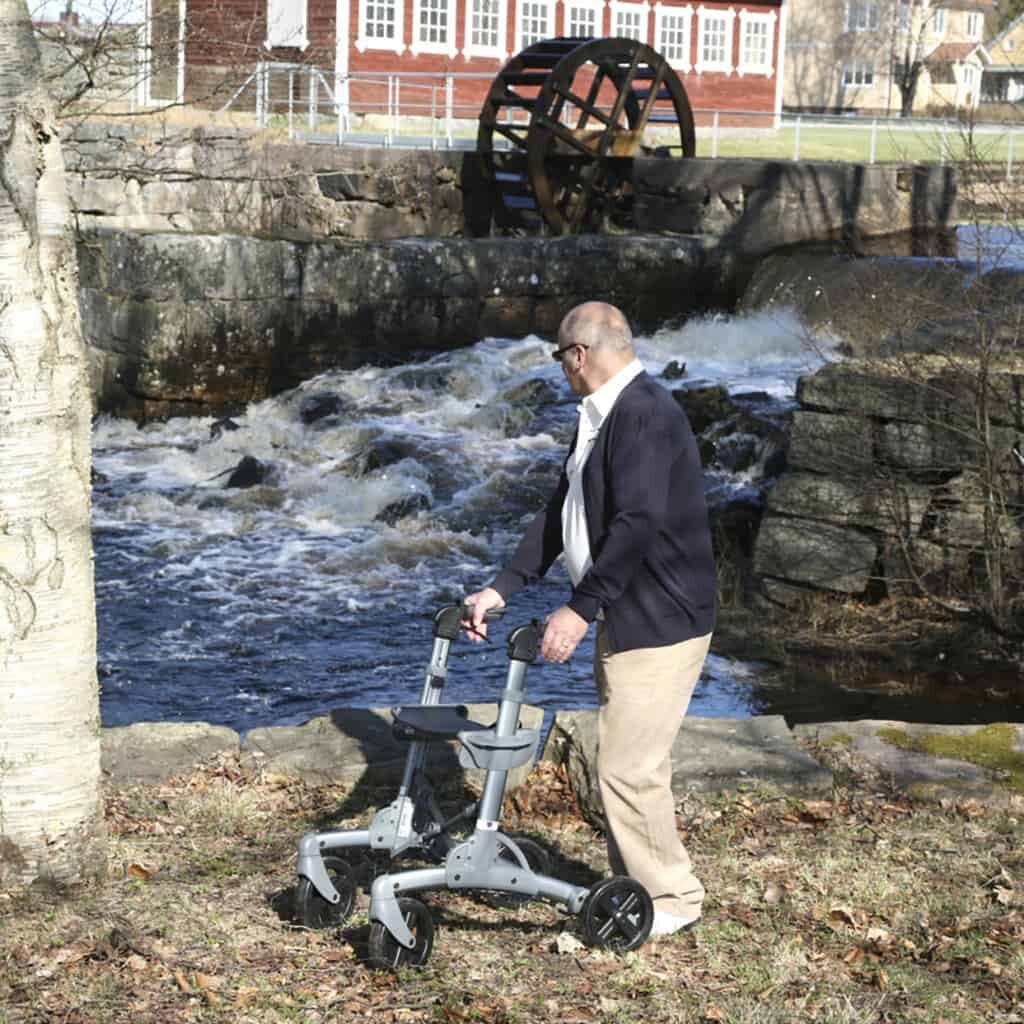
A high-quality rollator, equipped with features like sturdy construction, ergonomic design, and adjustable height, can provide stability and support for older adults with mobility challenges. By offering a reliable walking aid, rollators allow individuals to navigate their surroundings independently, which promotes a sense of autonomy and self-confidence.
The use of a rollator helps individuals maintain an active lifestyle by enabling them to walk longer distances and engage in daily activities with greater ease. This increased physical activity has numerous benefits, such as improving cardiovascular health, strengthening muscles, and enhancing overall fitness.
Rollators provide a sense of safety and security, reducing the fear of falling or sustaining injuries. This newfound confidence encourages older adults to venture out, participate in social activities, and maintain connections with their communities, ultimately enhancing their mental well-being.
Rollators often come with practical features like built-in seats and storage compartments, allowing individuals to rest when needed and carry personal belongings or groceries. These functionalities further promote convenience, self-sufficiency, and an active lifestyle.
Challenging Misconceptions for Greater Quality of Life
It is important to challenge misconceptions about aging and mobility to foster a more inclusive and respectful attitude towards older adults. Recognizing the diverse experiences and capabilities of older individuals helps promote their overall well-being and ensures they can live fulfilling lives in society.
By providing stability, support, and independence, rollators enable individuals to lead active lives, engage in social activities, and maintain their physical and mental well-being. Embracing such assistive devices helps foster a more inclusive and positive perception of aging while empowering older adults to live fulfilling lives.

